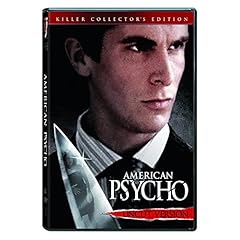Book Review: "Ghost Rider: Travels on the Healing Road" ~ Neil Peart

"Ghost Rider" is a fantastic book about travelling in many different ways, both literally and mentally. Neil Peart, legendary drummer of the Canadian progressive rock trio Rush, had to endure the terrible loss of both daughter and wife over a period of 10 months and this book is the very process of healing told in the first person.
This was my first Neil Peart book and I loved his prose style. Descriptive, yet it doesn't drag. An easy read and if you like stories about travelling, you'll love this one as Neil tells of his ramblings across North America (Canada and USA including Alaska) and Mexico. He's also a very gifted letter writer and his process of healing included writing a lot of letters to close friends over solitary dinners at roadside restaurants and motels. It's true the book can be a bit boring in some brief passages but even those I felt were very important to Neil on overcoming his personal tragedies. And the rest more than makes up for those.
A great book from a fantastic person. If you like travelling, especially on motorcycle, and even if you've never heard of Rush before, you'll certainly enjoy this one both as travellogue and an insightful narrative of healing the deepest of wounds. I'm definitely looking forward to reading the other books by Neil.

 The story of Patrick Bateman, the serial killer of Bret Easton Ellis 1991 novel, seen through the eyes of a woman director. Would this have been the same movie if it was done by a man? It probably wouldn't. And that's a good thing.
The story of Patrick Bateman, the serial killer of Bret Easton Ellis 1991 novel, seen through the eyes of a woman director. Would this have been the same movie if it was done by a man? It probably wouldn't. And that's a good thing.

 Like many others, I believe, I got hold of the original 1994 "Clerks" because of the recently release sequel. What I found in this first installment is a good, authentic, sometimes quirky, sometimes hilarious comedy which I think we should take a bit more seriously that it takes itself.
Like many others, I believe, I got hold of the original 1994 "Clerks" because of the recently release sequel. What I found in this first installment is a good, authentic, sometimes quirky, sometimes hilarious comedy which I think we should take a bit more seriously that it takes itself. "Hable con Ella" is the first Almodovar film I see so I can't quite put this in perspective. What I can say is that this is a powerful drama done in a way that only non-American cinema looks and feels. There's just a "je ne sais quois" that sets this kind of cinema apart and Almodovar seems to be a master of this effect.
"Hable con Ella" is the first Almodovar film I see so I can't quite put this in perspective. What I can say is that this is a powerful drama done in a way that only non-American cinema looks and feels. There's just a "je ne sais quois" that sets this kind of cinema apart and Almodovar seems to be a master of this effect.

